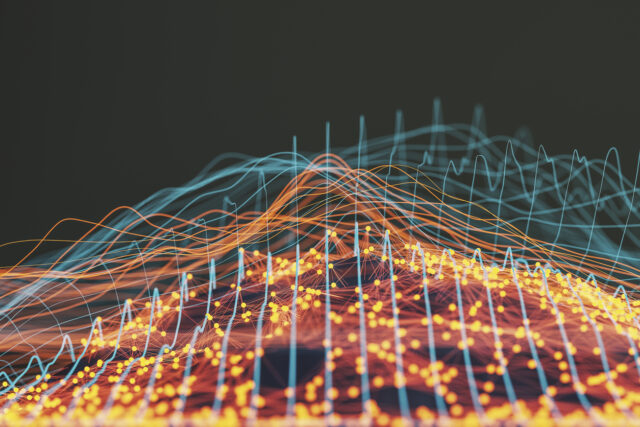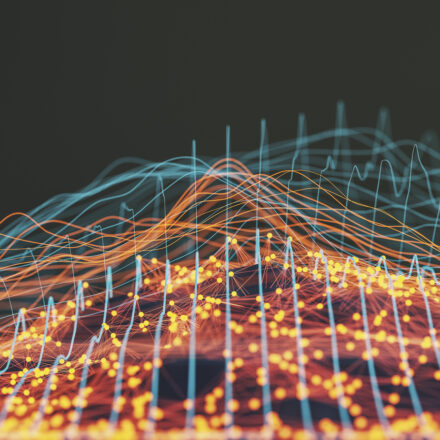Three years ago, we talked about the Renaissance of the PC. While the PC has always helped us connect and collaborate, in 2020, at the height of work-from-home and virtual learning, we saw just how critical the PC is to all aspects of our lives. It was at that time we laid out our vision for the future, outlined where our investments were going and predicted how the PC-human experience would evolve.
Now, we have another pivotal moment at our fingertips. This time it’s with generative AI (GenAI). The advances we’ll see from GenAI will compare to the introduction of the PC 40 years ago when it brought unseen levels of productivity to the world. But what exactly does this mean for the future of the PC? How will GenAI shape the PC-human experience?
First, the here and now
To understand the future opportunities of AI, let’s first look at where we have been and where we are today. Chances are you’ve been using some type of AI in your daily life already (let’s not forget AI and machine learning have been around for a while). We saw the opportunity for PCs to help drive human productivity and became an early AI adopter, making our PCs more intelligent, self-aware and user aware.
For example, with Dell Optimizer,[i] the software uses AI to automatically configure itself to make you more productive by doing things such as running apps faster, preserving battery life and blocking out unwanted background noise on conference calls. This is why we can proudly say we have the world’s most intelligent commercial PCs.[ii]
As the power of the PC increases, so does its ability to have a hand in developing GenAI. Our Dell Precision workstations support GPU and multi-GPU acceleration, CPU multi-threading and more. All this power helps app developers train large AI models anywhere from five-million to 500-million parameters locally on the device—to prepare, develop, prototype and deploy GenAI models.
The opportunities of GenAI – near term
GenAI will influence how we live and work. While there’s still a lot to imagine, AI-enabled PCs are increasingly becoming part of this discussion. We saw how GenAI will unlock new levels of productivity with the recent announcement of Microsoft Copilot. Demo after demo we observed how we can collate and create information faster than ever before. This puts ideas at the centre, letting you shift your time to creativity, problem-solving and innovation.
We’re working closely with Microsoft as it rolls out new Copilot in Windows (in preview). Windows 11 users can start realising these benefits today.[iii] But we won’t stop there. You’ll see us focused on being the leading PC provider for the AI era, with additional emphasis and investments centred around intelligence, security and being a trusted end-to-end AI advisor.
Then, as we ask our devices to do more, it will require PCs that use language modeling, language processing and machine learning capabilities to improve the user experience. These experiences bring a lot of efficiencies like cost effectiveness, improved privacy and security, reduced latency and sustainability benefits. It will also require a new architecture that doesn’t purely rely on the CPU or GPU for processing. We’re actively working with partners throughout the industry to make this new architecture a reality. We can’t wait to show you more.
The possibilities of GenAI – long term
Looking beyond the next few years, we see your future PC as a true digital partner. PCs will move beyond driving human productivity to driving human performance. This will require you to reimagine how you work with the familiar laptop and desktop of today.
For example, instead of mostly command-and-control interactions driven by you typing on a keyboard, there will be additional non-text-based ways to prompt technology to have a bi-directional experience between humans and PCs. Imagine a future where you can collaborate or co-create with voice, visual commands and gestures. Envision allowing your PC to interpret your mood, facial expression, tone of voice or even a change in the way you type for a much richer experience that delivers the result you are looking for, how you will best receive it. Your PC experience will transition from searching to prompting, from reading to understanding, from editing to directing.
It’s exciting to think about what’s to come, not just for devices, but the entire PC ecosystem. We take our cues from human experiences to drive human progress, and our broad portfolio of products, solutions and services will play a critical role in powering this future.
We are at an inflection point
I’ve been in the tech industry for 30 years. It’s always been fast-paced and exciting, but the opportunity we have ahead is unlike anything we’ve seen since PCs were introduced 40 years ago. We’d be lying if we said we have all the answers – we don’t. The collateral benefits alone are so immense. But I can tell you humans will remain at the core of progress. Between new software developments, new architectures on the horizon, new services capabilities and our ongoing explorations that centre around human connection and experience, we’re at an inflection point. End-user experiences will change for the better and quicker than ever. We’ve been handed an opportunity – go revolutionise the PC experience. We’re here for it.
[i] Dell Optimizer is the AI-based optimisation software for commercial PCs and MyDell is the AI-based optimisation software for consumer and small business PCs. Dell Optimizer is not available in OptiPlex 3000 series, Latitude Chromebook Enterprise, and Linux-based devices. MyDell is only available on new Inspiron, Vostro and XPS PCs beginning in 2023, as well as select models from 2021 and 2022. MyDell is not available on Alienware PCs. Feature availability and functionality may vary by model. For more details visit Dell Optimizer Availability Matrix and MyDell Feature Availability Matrix.
[ii] Based on Dell analysis, November 2022.
[iii] Copilot in Windows will start to release in preview to select global markets as part of our latest update to Windows 11. The initial markets for the Copilot in Windows preview include North America and parts of Asia and South America. It is our intention to add additional markets over time.


